Introduction
Amino acids supplements are generally effective for muscle growth. The effects of amino acids on muscle gain are captured in research and studies recorded by experts. For instance, the International Society of Sports Nutrition (ISSN), in its position stand on creatine, reveals that this amino acid contributes to muscular strength and gain through the energy released to the body. This article takes a look at amino acids that most impact muscle gains, according to scientific evidence.
1. Creatine
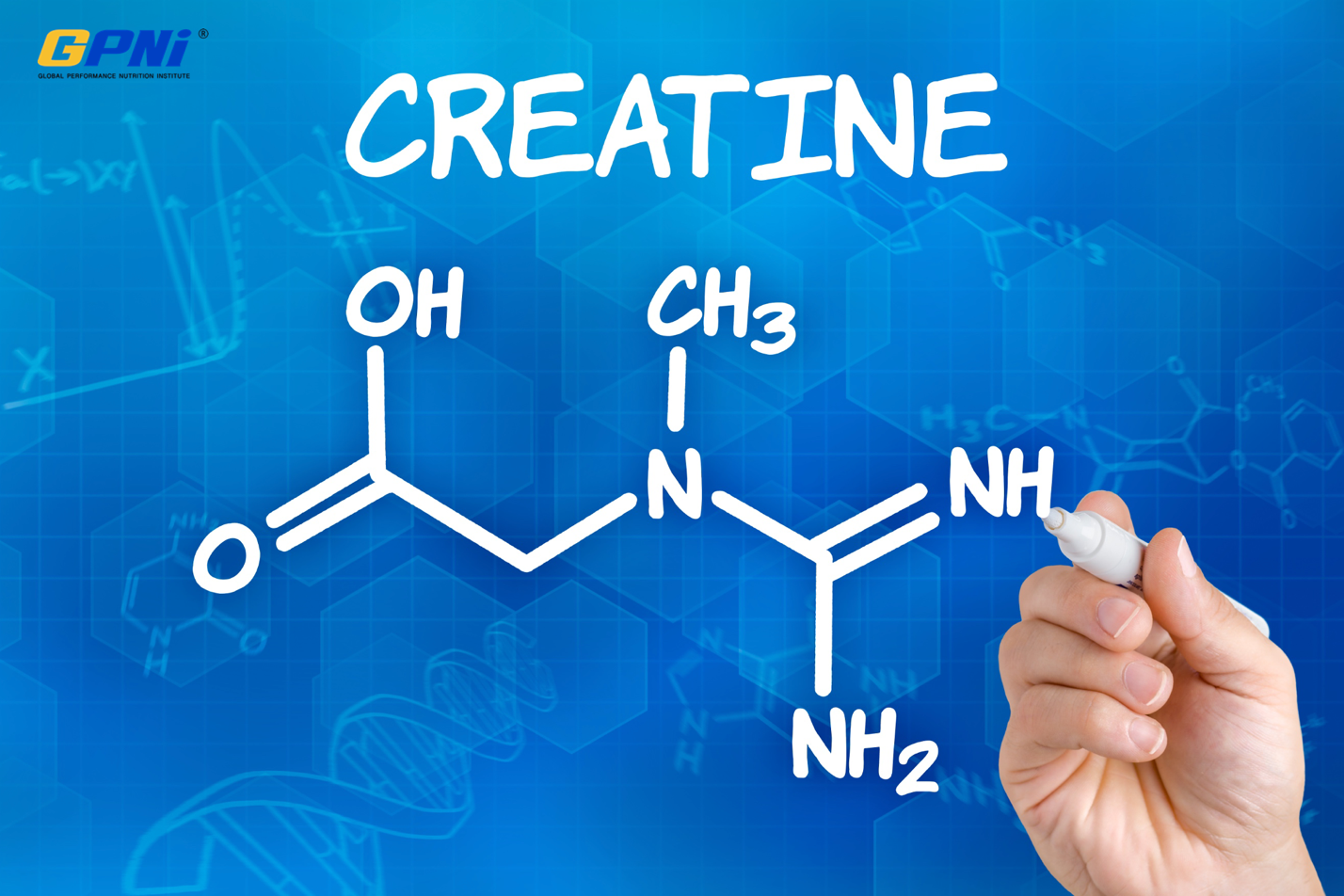
Creatine supplement is one of the most popular supplements used by athletes to enhance performance. However, before discussing the contribution of creatine to a lean body mass, it should be noted that creatine is a compound made of three nonessential amino acids, namely glycine, methionine and arginine. Creatine is stored in the body’s skeletal muscle.
Creatine generally contributes to the body through the provision of energy to the muscles and other tissues. However, when creatine supplements are taken, they increase the creatine content in the muscles by about 40%. This causes even more energy to be released to the body and enhances exercise performance, which aids gain in muscle mass.
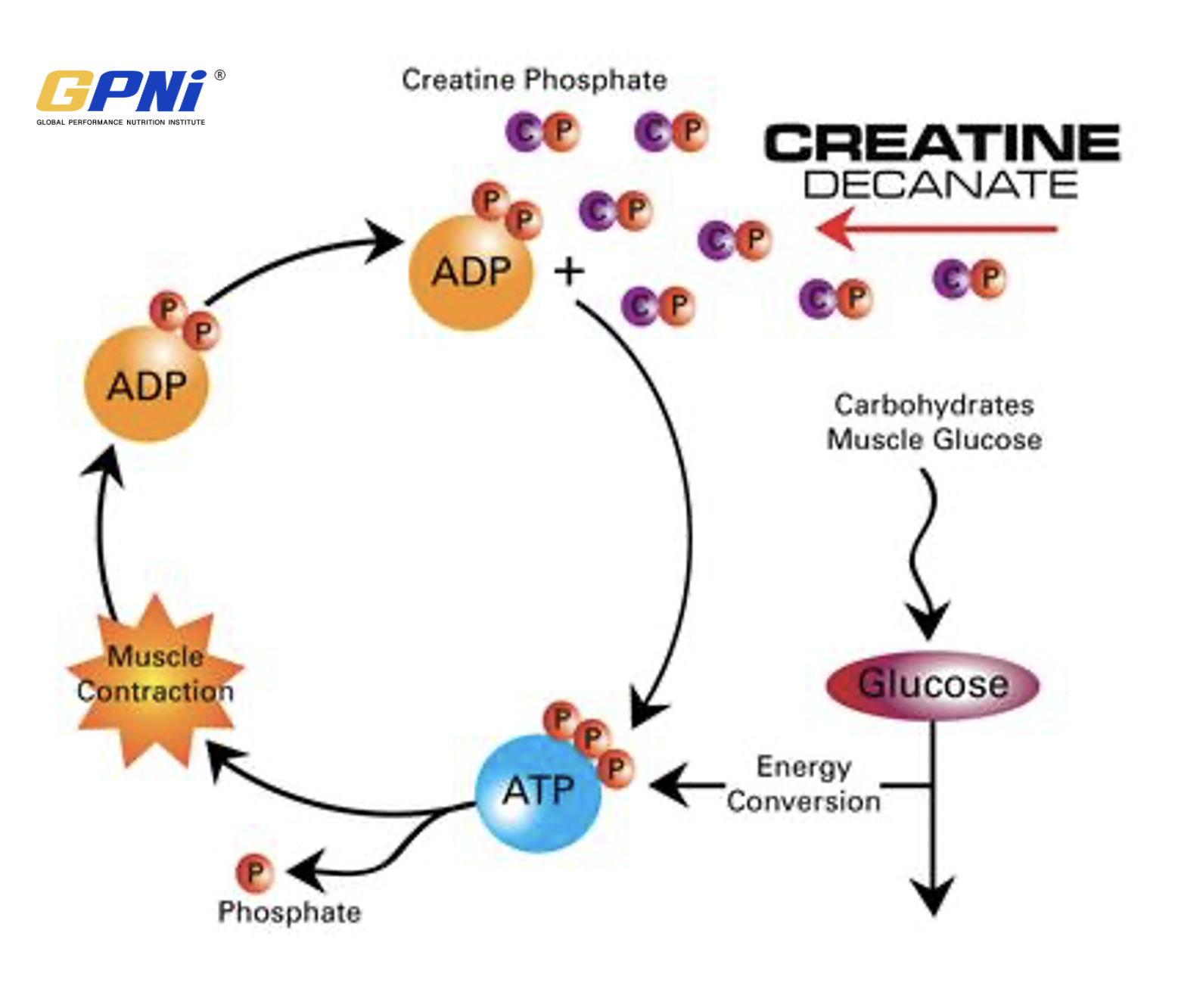
The effect of creatine supplementation on the body’s energy level is evidenced by its impact on Adenosine triphosphate (ATP). The body’s cells utilize ATP as the primary energy source, and it plays a vital role in metabolism and muscle activity. However, the body can only store adequate ATP for about 10 seconds of rigorous and high-intensity activities. Once this time has elapsed, a fresh batch of ATP to match the exercise performed is produced. However, the body is unable to produce enough ATP per second to match performing high-intensity activities. This explains why individuals cannot run full sprints for more than a few seconds – there is just not enough ATP for such intense activity. Creatine supplementation, however, affects ATP production through an increase in the body’s phosphocreatine stores. This increase helps the body gain an extra amount of energy before fatigue arrives. With more time spent in training, there is more time for muscle gains.
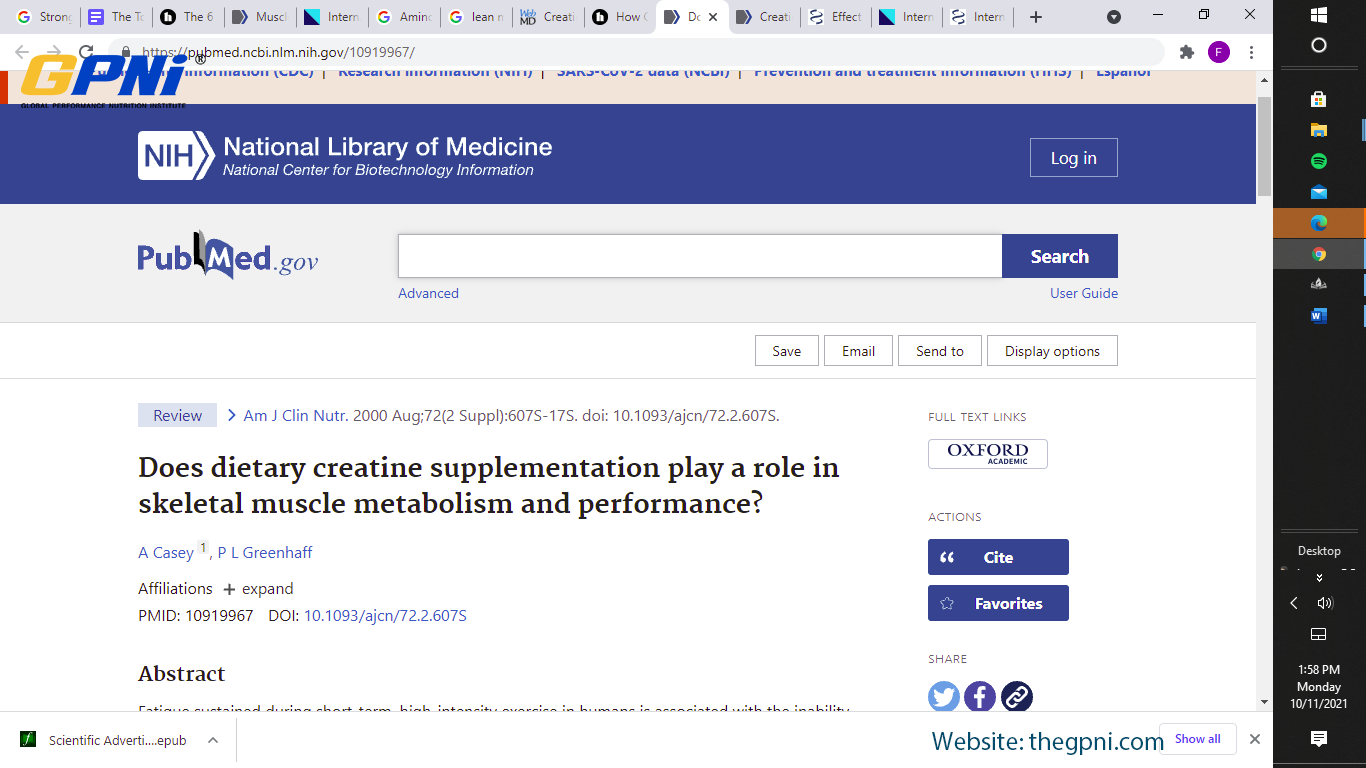
The ISSN also confirms the effect of creatine on lean muscle gain in its position stand on the amino acid. It stated that: creatine monohydrate is the most effective agent for increasing high-intensity exercise capacity and lean body mass during training.
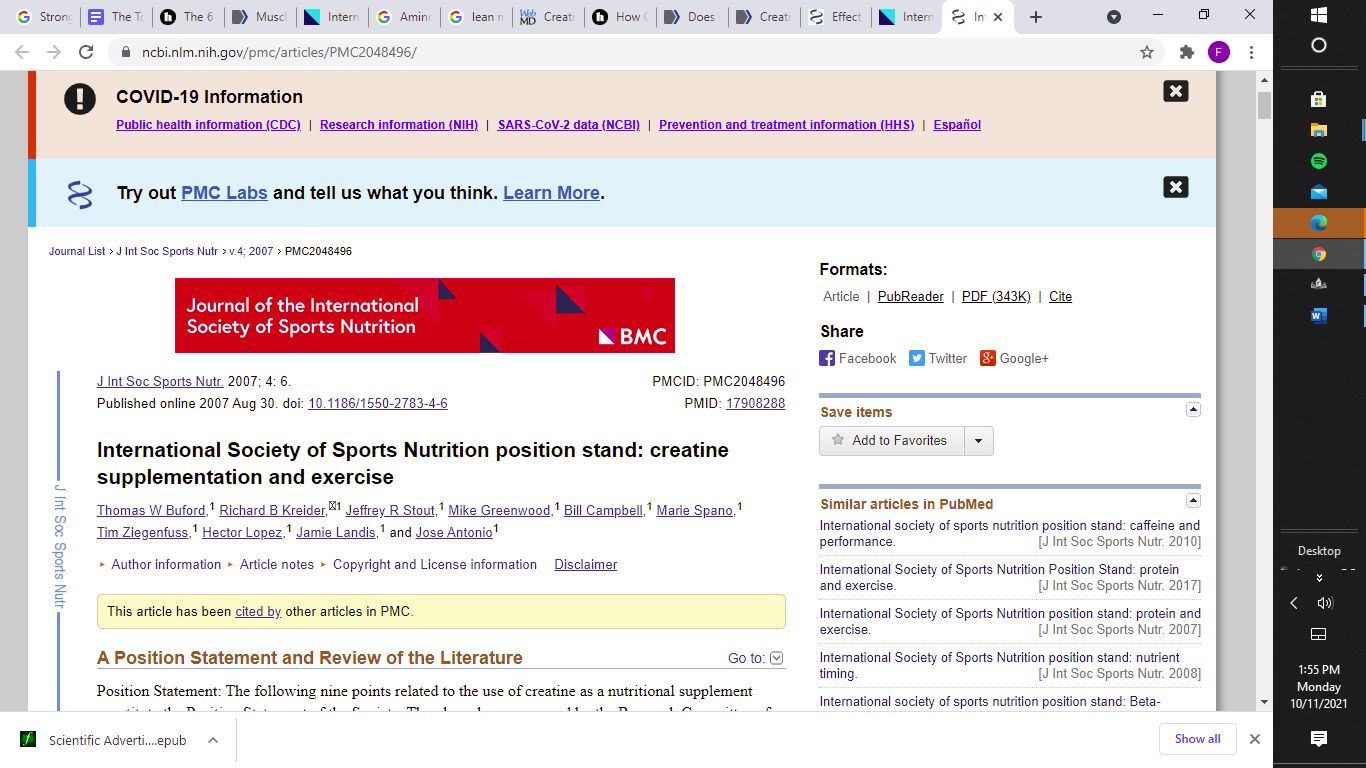
Furthermore, a study conducted by the National Center for Biotechnological Information (NCBI) concluded that creatine and HMB could augment lean mass and strength gains alongside resistance training. However, it is crucial to note that creatine supplements must be combined with resistance training or intense exercise to cause lean muscle gain.
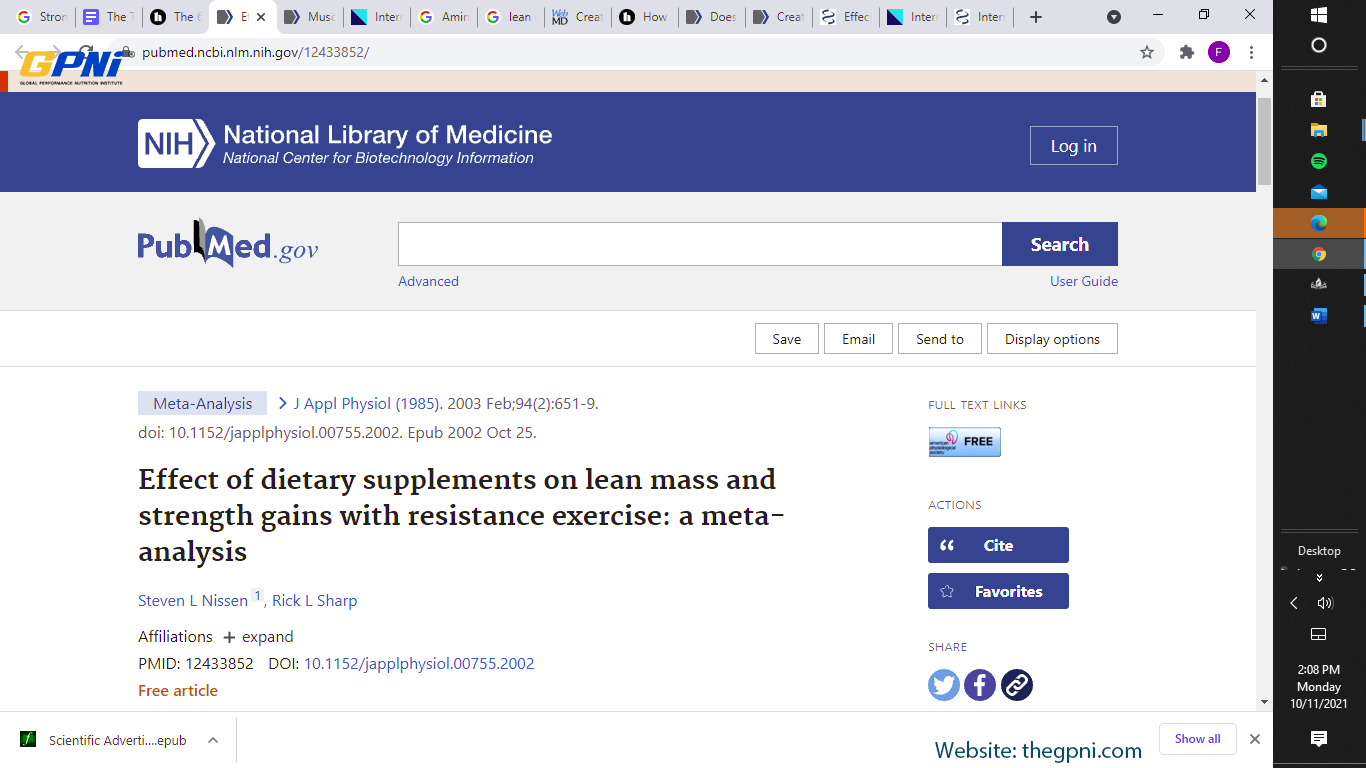
On the Safety of Creatine
One question that is usually asked concerning the use of amino acid supplements is whether they are safe. In the case of creatine, the scientific consensus is that it is safe for use. The ISSN’s position confirms this and mentions that creatine might offer additional health benefits, especially when taken as recommended.
We published an in-depth article about Creatine, saftey and efficacy here last month also for those that wish to learn more, Click Here
2. Beta-Alanine

Beta-alanine is an amino acid whose primary function is reducing fatigue through the increase of carnosine levels in the body, thereby enhancing performance in sporting activities. However, research has also shown that beta-alanine can impact muscle gains. The National Center for Biotechnological Information (NCBI) carried out one such study on collegiate wrestlers and football players. This study concluded that beta-alanine could enhance performance and stimulate lean mass accrual in previously trained athletes within a short period (8 weeks).

Another study on Beta-alanine conducted by the NCBI also ends in the same result, where high-intensity training alongside beta-alanine supplementation led to lean muscle gain. Just like with creatine, it is essential to note that beta-alanine supplementation should be combined with training.
On the Safety of Beta-alanine
The ISSN’s position on beta-alanine states that using the amino acids is safe, especially when taken according to recommended doses. Beta-alanine has only one side effect, paranesthesia (tingling of the skin, particularly at the neck and back of the hand) when high beta-alanine dosages occur.
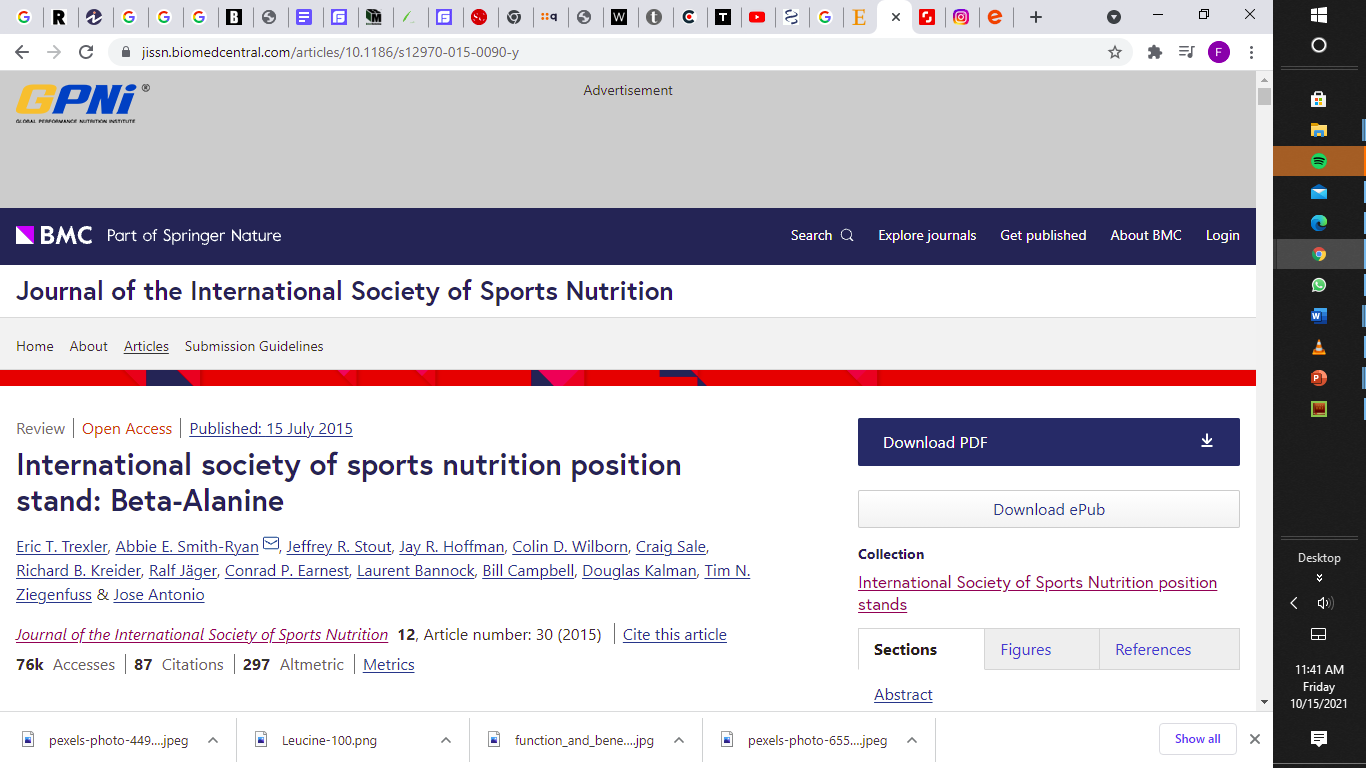
We also posted an article with a deep-dive into Beta-Alanine earlier this month, which you can Read More Here. (link to article Beta-Alanine is the new creatine?)
3. Essential Amino Acids (EAAs)
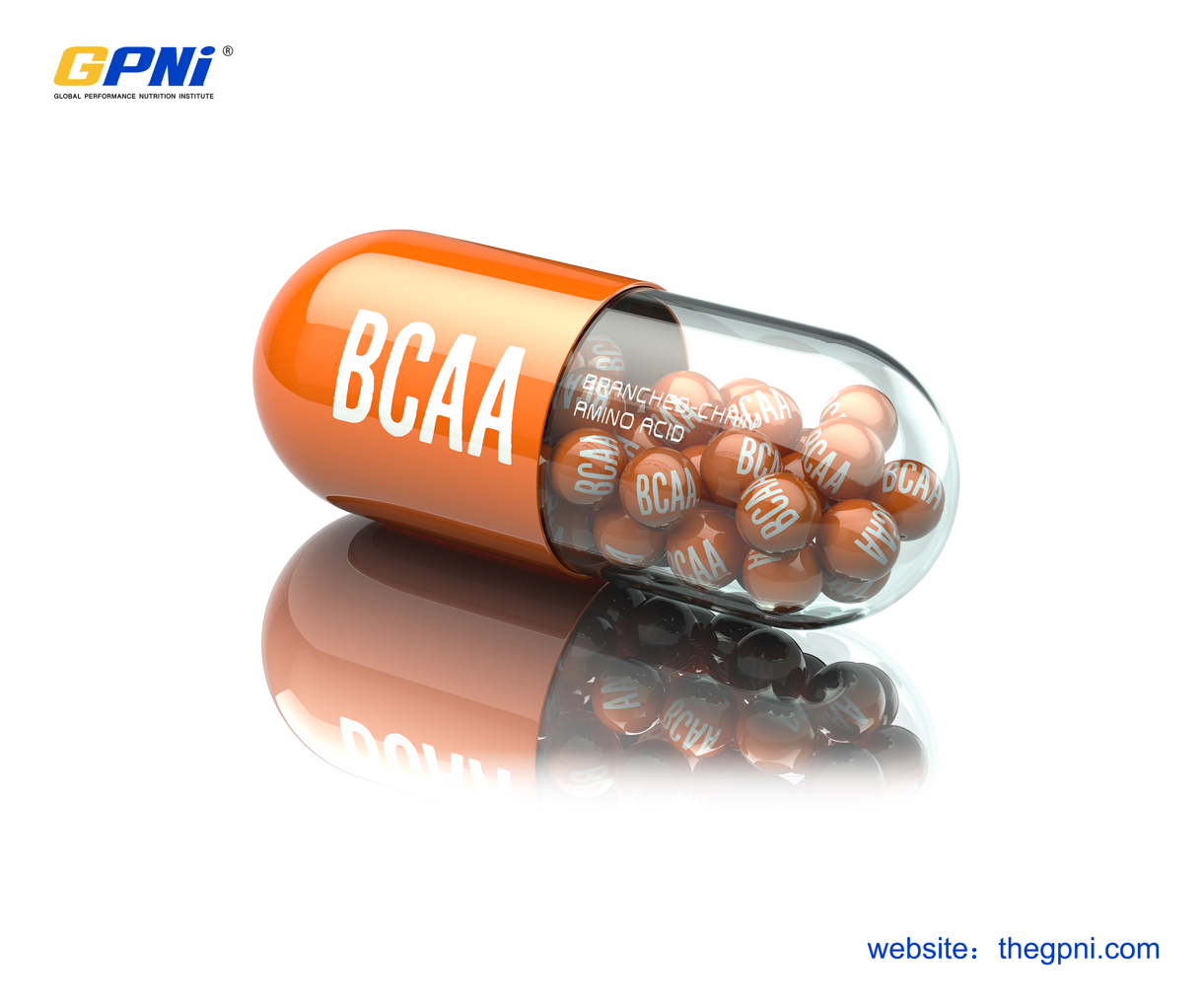
Essential Amino acids refer to amino acids that cannot be made by the body and can only be provided through diet. The body makes use of 20 different amino acids for growth and proper functioning. Among these 20, only nine of them fall under the category of essential amino acids. They include leucine, lysine, phenylalanine, threonine, methionine, histidine, isoleucine, tryptophan and valine. The best sources of these amino acids are proteins from animals, such as egg and meat.
Among their other functions in the body, essential amino acids contribute to muscle building and gain. This task is particularly carried out by the Branched-Chain Essential Amino Acids, namely isoleucine, valine and leucine, although studies have shown that taking in Essential Amino Acids in general help to enhance exercise performance and reduce fatigue. For instance, a study from the University of Nebraska on a group of women who took in either 18 grams of EAAs or placebo daily for eight weeks revealed that the exhaustion time on a treadmill exercise for the EAA group increased by 12%. This consequently aids in muscle gain.
Furthermore, Branched-Chain Essential Amino Acids have been shown to maintain lean body mass in trained individuals on a hypocaloric diet and are working to lose fat mass. NCBI researchers conducted a study that demonstrated this.
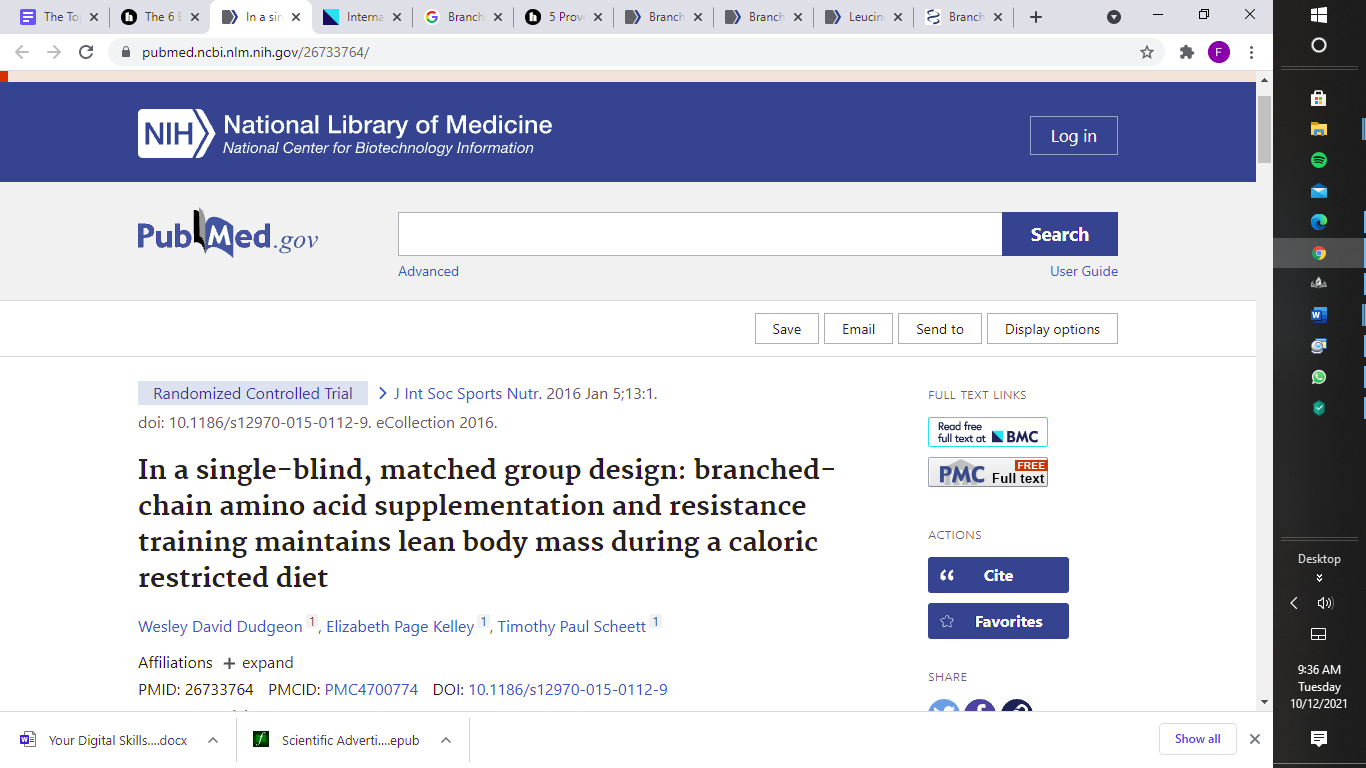
Even where EAAs do not necessarily contribute to muscle gain, they help to prevent muscle loss. For example, a study on 22 older adults on bed rest showed that the daily intake of 15 grams of EAA helped maintain muscle protein synthesis.
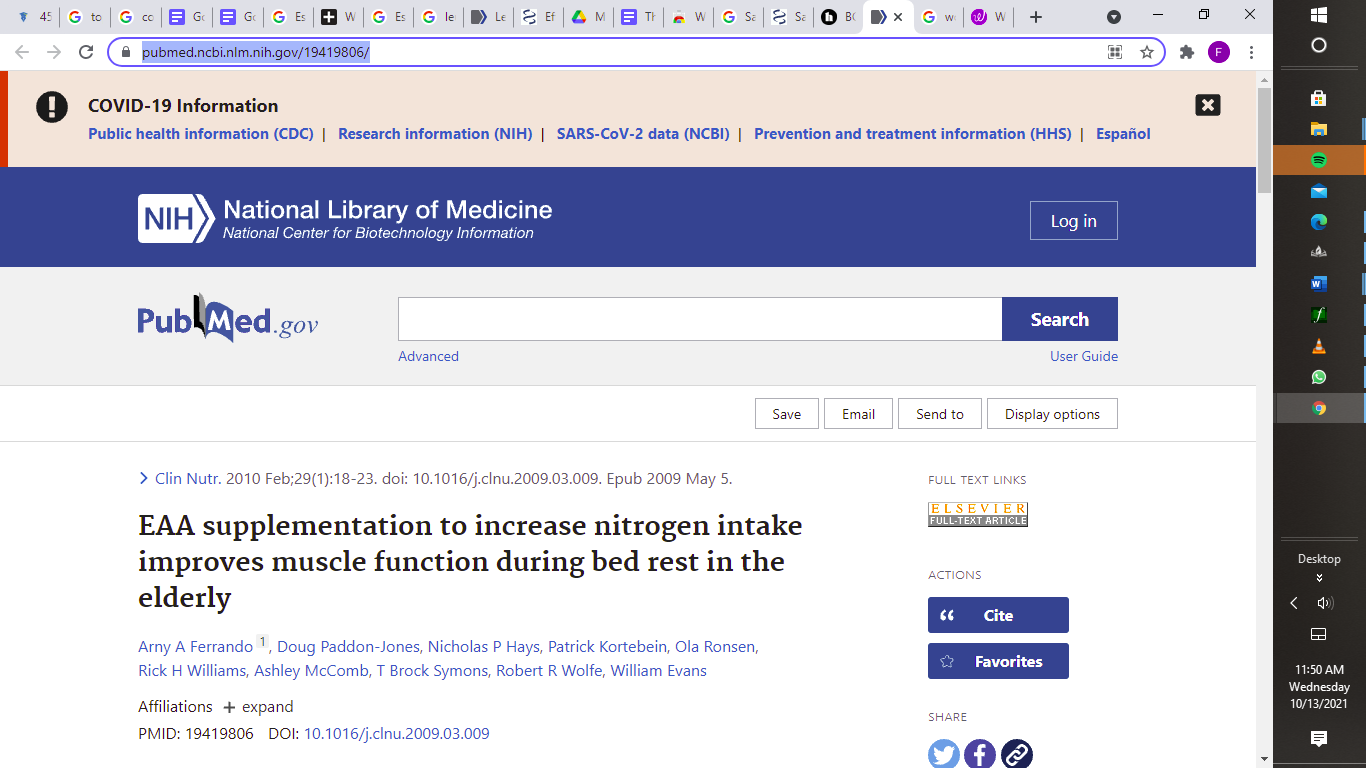
On the Safety of Essential Amino Acid (EAA) Supplements
Like the others before them, EAAs are generally deemed safe for most people when taken as recommended.
4. L-Leucine
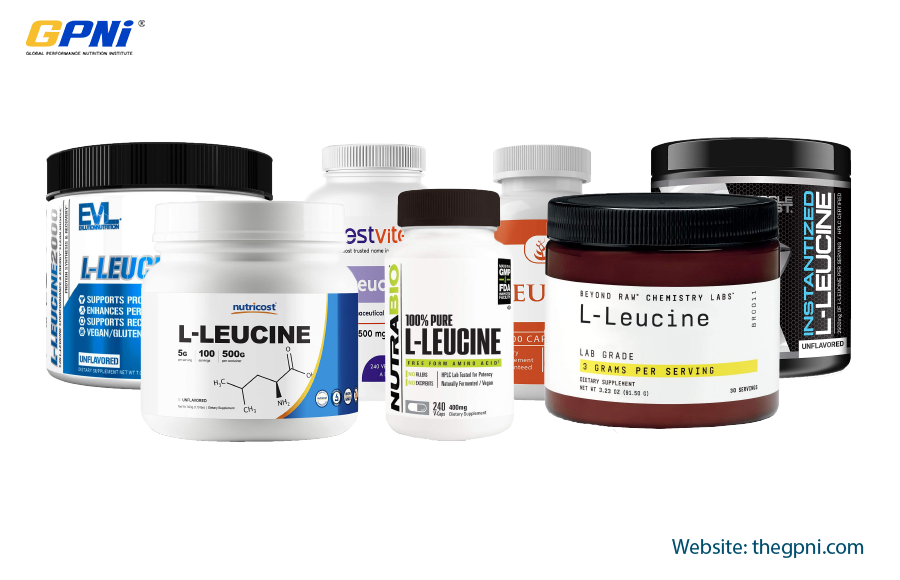
Leucine is an essential branched-chain amino acid that mainly serves to help in muscle building and repairing. It can be obtained only through diet, especially those rich in animal protein.
The effect of leucine on muscle gain is captured in multiple studies to that effect. The NCIB has listed an example of one such study. The study set out to test the efficacy of leucine supplementation on older adults. It was concluded from the study that leucine is a useful supplement to improve muscle protein anabolism in older adults, especially where they are inactive or suffer from malnutrition and frailty.
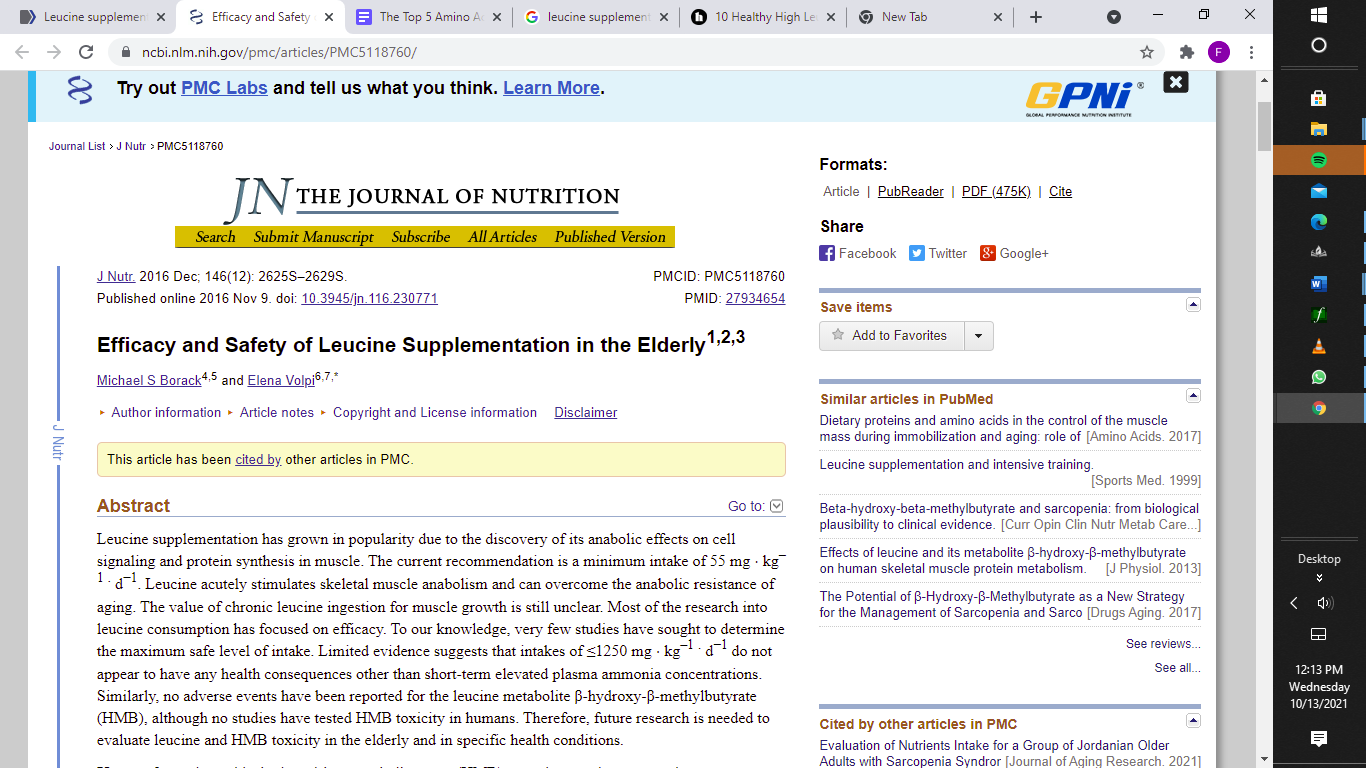
Safety of Leucine
Just like all other essential branch-chained amino acids, leucine is generally considered to be safe. However, taking high dosages for an extended period could lead to low blood sugar. A NCBI study to determine the safety of leucine supplementation for older adults, also concluded that there were no significant health consequences for its intake.
5. L-Taurine
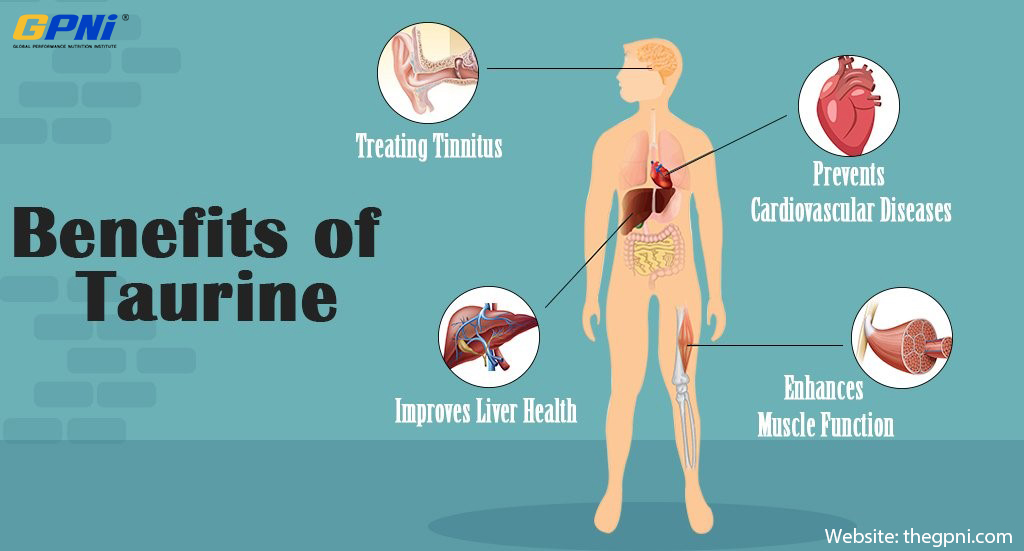
Taurine is an amino acid naturally produced in the body, even though it can also be gotten from diets and supplements. Taurine is best gotten from animal protein, as well as vegetables in some instances. Taurine performs several functions in the body, including boosting the immune system and aiding muscle gain by enhancing exercise performances.
Studies have shown that taurine boosts exercise performance through the removal of waste products which cause muscles to burn and induce fatigue. For example, one such study conducted on young men given bicycle exercises by the NCBI revealed that taurine supplementation enabled the participants to go for longer distances with less tiredness.
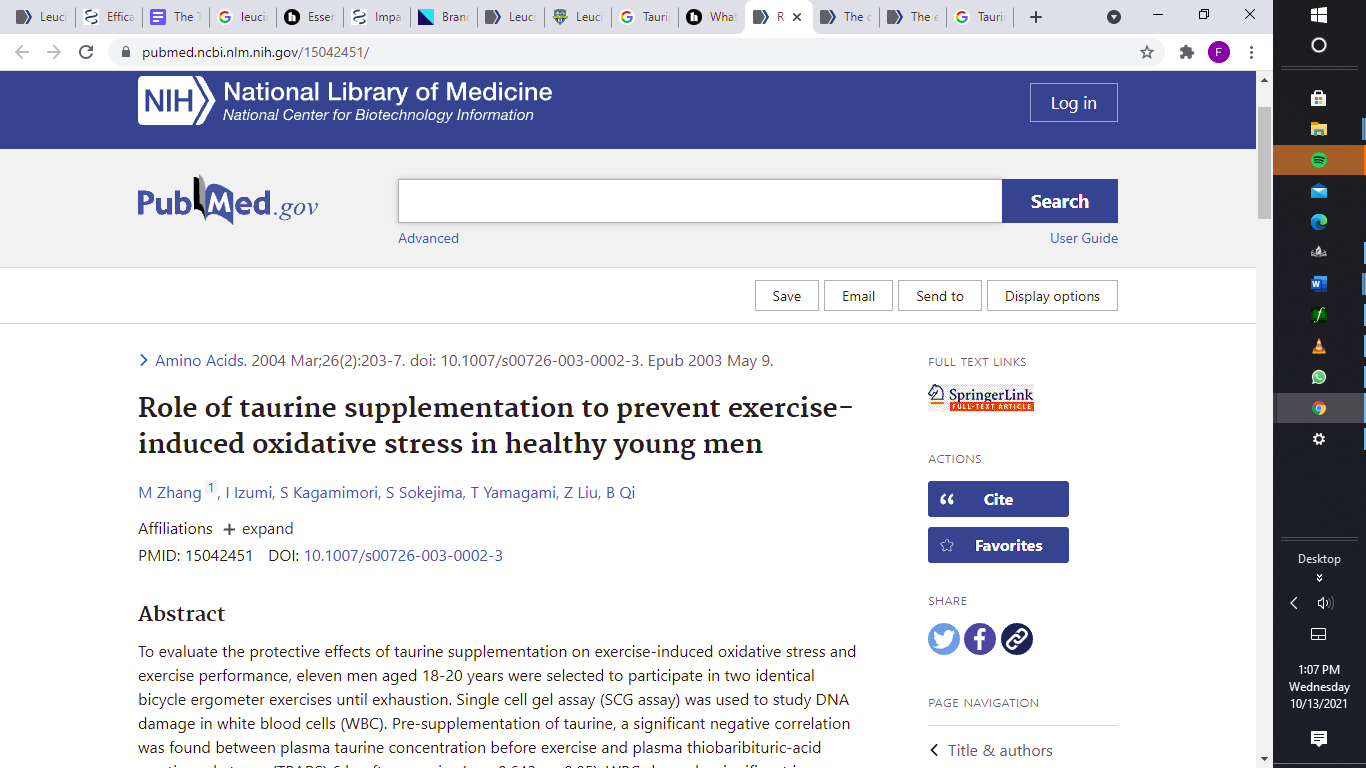
Similar results were observed in a study conducted on trained middle-distance runners by the NCBI.
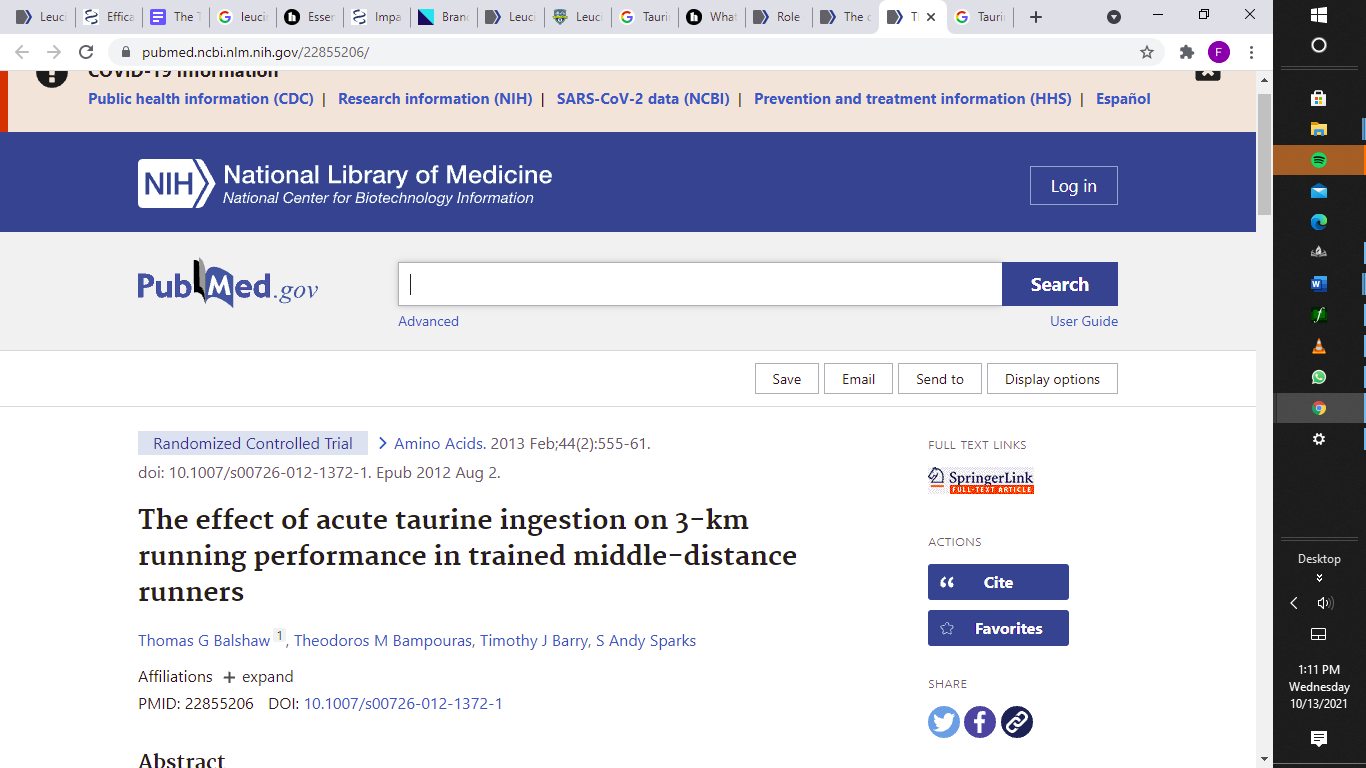
Read full details here:
On the Safety of Taurine
Taurine is considered to be safe and has no known side effects when taken reasonably and maybe beneficial to energy and immune response.
Conclusion
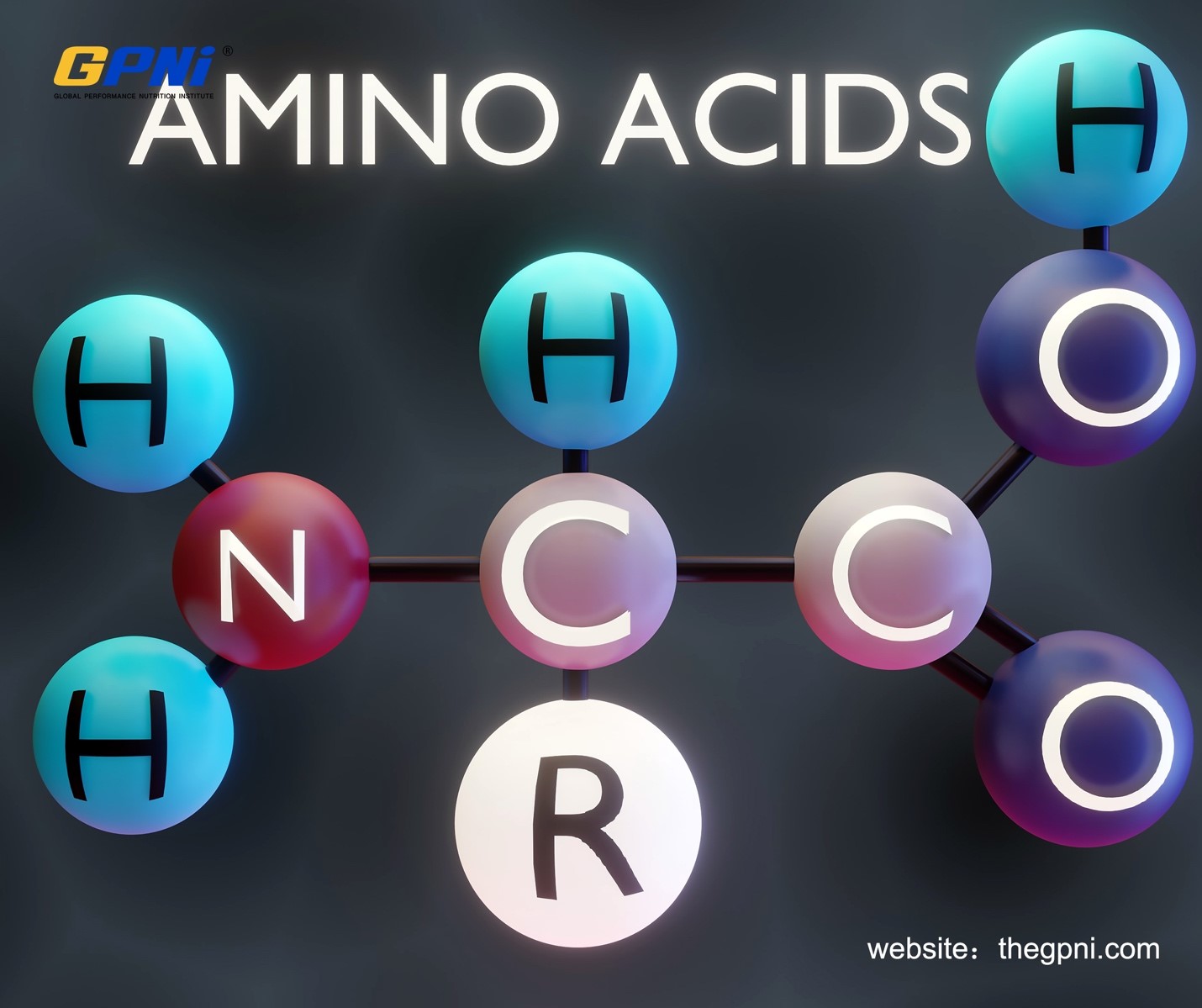
These five amino acids from several studies, and in unique ways, contribute to muscle gain. However, as stated above, individuals must know when each is most effective. This helps to maximize their use.
To know more about amino acid supplementation and muscle gain, get learning resources such as those listed below, and register today to be a Sports Nutrition Specialist (SNS®) on the GPNi® platform.
You also get to learn about the GPNi® patented “traffic light system.”
● Green – Good & Solid Research
● Orange – Some Limited Research but Not Considered Harmful
● Red – No Solid Research and Maybe Some Health Concerns

This enables you to learn what to safely recommend to your clients, athletes and yourself

You can also choose one of our Continued Education Certificate programs, such as the Endurance & Marathon Nutrition Coach (EMNC®) certificate program.
References
– https://www.ncbi.nlm.nih.gov/pmc/articles/PMC2430042/
– https://www.healthline.com/nutrition/supplements-for-muscle-gain#TOC_TITLE_HDR_7
– https://jissn.biomedcentral.com/articles/10.1186/s12970-017-0177-8
– https://pubmed.ncbi.nlm.nih.gov/10966150/
– https://jissn.biomedcentral.com/articles/10.1186/s12970-015-0090-y
– https://www.ncbi.nlm.nih.gov/pmc/articles/PMC5918575/
– https://www.news-medical.net/health/How-Does-Beta-Alanine-Help-Build-Muscle.aspx
– https://www.healthline.com/nutrition/benefits-of-bcaa
– https://www.webmd.com/vitamins-and-supplements/branched-chain-amino-acids-uses-risks
– https://www.ncbi.nlm.nih.gov/pmc/articles/PMC2048496/#B82
– https://www.healthline.com/nutrition/what-is-creatine
– https://www.ncbi.nlm.nih.gov/pmc/articles/PMC2048496/#B82
– https://www.webmd.com/men/creatine
– https://www.webmd.com/vitamins/ai/ingredientmono-873/creatine
– https://www.news-medical.net/health/What-is-Creatine.aspx
– https://www.ncbi.nlm.nih.gov/books/NBK241775/
– https://pubmed.ncbi.nlm.nih.gov/12107759/
– https://pubmed.ncbi.nlm.nih.gov/15042451/
– https://pubmed.ncbi.nlm.nih.gov/22855206/







